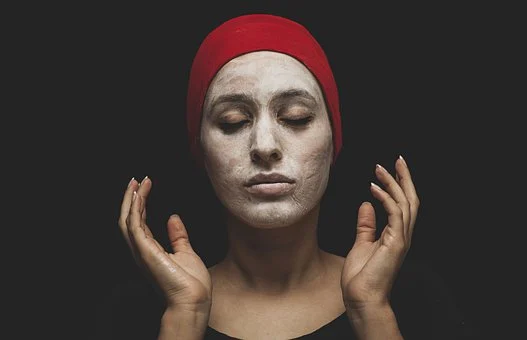We all have a collection of regrets that we’d like to forget. Many of us may recall at least one experience that did not go well for our skin, resulting in scarring, amongst the most prevalent types of skin damage, including sunburn, acne scarring, and inflammation from harsh treatments. When your skin is damaged, there are simple ways to help it heal and return to its healthy, glowing state from the comfort of your own home.
Here, you’ll learn how to repair the expression of damaged skin organically and why expensive procedures may not be the only solution to your skin troubles.
Causes of Damaged Skin
A variety of factors can cause a skin injury. Some of the damage we cause is our fault, while others are beyond our control. UV damage, harsh skincare treatments, scars from picking pimples, and plugged pores are the most common causes of skin damage.
If you spend too much time in the ocean or a chlorinated swimming pool, you could be damaging your skin by overexposure.
Visible Symptoms of Damaged Skins
You may experience the following indications if you have damaged skin:
- Dry, flaky, and uneven damaged skin
- Deep wrinkles
- Red, itchy, and tight feeling skin
- Excessive oil production
- Hyperpigmentation
Recover Damaged Skin Naturally
We can restore a compromised skin barrier in the comfort of our homes with the help of many natural ingredients. When our skin barrier is broken, what we put on and eat can significantly impact how quickly and successfully we can repair and restore it.
Apply Aloe Vera Gel
Aloe vera has been utilized for skin restoration since the beginning of time. While aloe vera is typically associated with sunburns, the plant is a fantastic alternative for acne-related skin problems as well.
While buying aloe vera gel from the store may be convenient, buying a live aloe plant is the most suggested way to take advantage of the plant’s skin-healing properties.
Scrape out the new gel from the interior by slicing a section of the outermost leaf in half. Remember that the aloe’s exterior should not be applied to the skin.
Apply to damaged skin every evening before applying an oil-based serum or moisturizer while the skin is in repair mode.
Facial Oils
Your daily moisturizer should be a workhorse, supplying more than just essential moisture when it comes to nurturing your skin. As a source of topical nutrients and fatty acids, as well as skin-supporting characteristics, organic botanical oils help to restore moisture levels, allowing your skin to thrive. Following oils are just a few of our favorite skin-loving botanical oils.
- Tamanu Oil
- Sea Buckthorn Oil
- Calendula Oil
- Biocompatible Jojoba Oil
Skincare Products with Antioxidants
Skin damage can be reduced by increasing your intake of nutrients from both the inside and outside of your body.
All of us know that eating antioxidant-rich foods is good for us. Fortunately, applying antioxidants to our skin has several positive effects. Vitamin C and E, two skin-loving antioxidants, come highly recommended and have a long history of research proving their efficacy.
- In addition to brightening the complexion, Vitamin C can also help reduce the appearance of uneven skin tone and dark spots by reducing inflammation.
- Dry skin and damage from acne scarring benefit greatly from vitamin E.
Avoiding Dermal Irritants
When attempting to restore sun-damaged skin, you must avoid direct sunlight. If you can’t use sun protection topically because of your skin condition, we recommend that you wear a hat and clothing that shields your skin from the sun.
We strongly advise you to stay away from anything that has a scent in it. Essential oils, for example, are used to create natural fragrances.
Using laundry detergent with scent can cause skin irritation; thus, we advise against it. Because your skin is constantly in contact with your bed linens and clothing, it’s better to avoid it altogether.
Peeling or delicate skin should not be exfoliated. Make sure you avoid facial cleansers with drying ingredients, such as those containing synthetic foaming agents or those that have fragrances. A light oil cleanser or raw honey can be used as a face wash instead.
Conclusion
To protect your skin, take care of it. This is the only way to keep the skin young and healthy for a long time. Consulting a dermatologist if you are experiencing any problem with your facial skin may be helpful. To consult the best dermatologists, visit MARHAM.PK today!
Frequently Asked Questions (FAQs)
1- How long does it take naturally to repair damaged skin?
It takes 28 to 42 days for the skin to heal in people, and it takes longer for the skin to mend and replace damaged cells in people over the age of 50.
2- Can damage skin repair itself?
Dermis and epidermis make up your skin. Four stages of skin healing are done naturally and are triggered when the dermis is damaged, and collagen formation is one of them.
3- Can I sleep with aloe vera on my face?
Yes, you can sleep with aloe vera on your face since it doesn’t have any side effects.
4- Does aloe whiten skin?
Anti-aging ingredient Aloin is found naturally in Aloe Vera. Skin defects such as dark spots and patches are eliminated, and dead skin cells are eliminated by using this chemical. Consequently, the answer is yes, aloe vera can assist in lightening skin tone!









